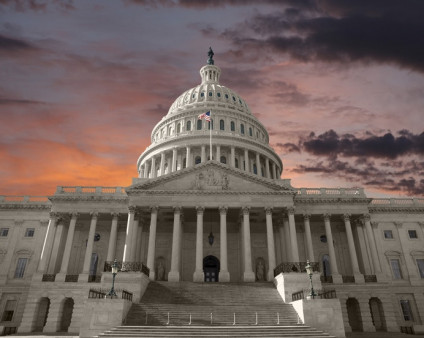The Obama Administration and Senate Democrats are proposing their own vision for the 2016 fiscal year (FY) that begins October 1, 2015, while continuing to sharply critique the Republican congressional majority’s controversial FY 2016 budget framework. The Democrats’ strategy is important for advocacy on FY 2016 funding for global and domestic HIV programs.

The main focus of the administration and Senate Democrats’ criticism is the Republican majority’s adherence to the Budget Control Act’s sequester-level spending caps for non-defense programs while ignoring the mandated caps for defense spending. The flesh and bones of the congressional majority’s approach is seen in the Defense appropriations bill that was approved by the Defense Subcommittee this week. The defense spending in the bill is $55.6 billion above the sequester-level cap for FY 2016 by using budget gimmicks to circumvent the sequester caps that are designed to cap spending for both defense and non-defense programs equally.
Right before the full House Appropriations Committee’s consideration of the Commerce/Justice appropriations bill earlier this week, the director of the White House’s Office of Management and Budget (OMB), Shaun Donovan, sent a letter to the committee chairman, Rep. Hal Rogers (R-KY). The letter expressed the administration’s concerns with the bill adhering to the majority’s budget framework that locks in sequester-level spending caps. The letter cites the programs that are underfunded (relative to the president’s FY 2016 request) in the bill, such as cuts to the Civil Rights Division and cuts to the Legal Services Corporation, which provides legal assistance to low-income people.
The OMB letter also highlights disturbing policy riders in the bill. The congressional majority’s intent to include numerous policy riders in this year’s appropriations bill is of particular concern to HIV advocates regarding the Labor/HHS bill, which funds nearly all domestic HIV programs, including the Ryan White Program. One of the policy riders added to that bill annually is the ban on the use of federal funds for syringe exchange programs, even as states and local governments recognize the efficacy of syringe exchanges as part of a comprehensive harm reduction approach. The Labor/HHS bill could also be a vehicle for policy riders that undermine implementation of the Affordable Care Act.
On Thursday, Senate Democrats responded to the majority’s budget framework with their own plan. In a meeting of the full Senate Appropriations Committee, the ranking Democrat, Senator Barbara Mikulski (D-MD) released an alternate set of allocations for the twelve appropriations bills. These allocations, known as 302(b) allocations, set the total amount of spending in each bill. The Democrats’ proposal matches President Obama’s FY 2016 budget request and assumes that sequestration would be repealed or reduced for FY 2016. Repealing sequestration would give considerably more funding available for non-defense programs and provide a legally acceptable way to increase defense spending. To no surprise, the Democrats’ proposal was voted down and the committee adopted the Republican chairman’s proposal for 302(b) allocations, which maintain the full sequester spending caps.
The appropriations process may become gridlocked if the Obama Administration issues a letter critiquing each appropriation bill that comes before the full House Appropriations committee ( as they have promised) and if congressional Democrats withhold support for bills that maintain sequester-level spending. White House officials also have said that the president will veto any bill that gets to his desk that adheres to the sequester caps.
A gridlock in passing appropriations bills could lead to serious negotiations over appropriations in order to avoid a government shutdown, which all sides say they want to avoid. For advocacy on needed funding levels for HIV programs, any deal would have to include full parity in sequester relief for non-defense spending and defense spending and would have to avoid cuts to essential mandatory and entitlement programs that benefit vulnerable populations to off-set sequester relief.
We may be in for a very interesting spring and summer. The AIDS United Policy Update will be here monitoring the process and keeping you informed and engaged as developments unfold.








Comments
Comments